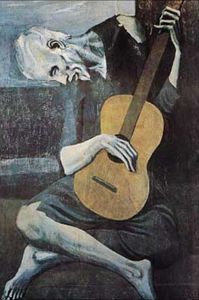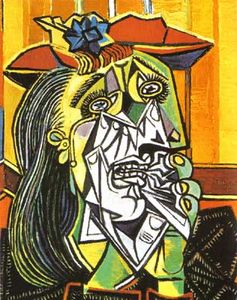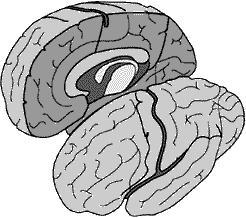Are We Born With Knowledge?
One thing I have always struggled with in reading philosophy is the doctrine of Innatism, which holds that the human mind is born with ideas or knowledge. This belief, put forth most notably by Plato as his Theory of Forms and later by Descartes in his Meditations, is currently gaining neuroscientific evidence that could validate the belief that we are born with innate knowledge of our world.
More
How You Can Make Quantum Mechanics Actually Work (for your Brain)!
If you were to ask any reasonable person (or reasonable physicist) how quantum mechanics works, 9 out of 10 times he/she would probably give you the same answer: magic. Yes, the field of quantum physics is known far and wide across academia as being both pretty difficult (lots of math) and pretty confusing (it just seems like it makes stuff up as it goes). However, despite all the tedium and wizardry that surrounds quantum mechanics, if you look hard enough at the many applications that the science has to offer to other fields, you may quickly come to find that it is also pretty dang awesome. Indeed, even the field of neuroscience has experienced some cross over with quantum physics in an attempt to explain many of the mysteries of the mind. But, what specific oddities about the brain are so opaque that they would need something as complex as physics' black magic to explain them?

What are the quantum mysteries of the mind?
More
Inside the mind of creative geniuses
Creative artists not only experience the world differently they also view the world differently. Picasso and Kandinsky, two of the well known creative geniuses of our time, both had disorders that forced them to perceive their world differently: could these disorders be one of the underlying factors that facilitated their genius?
Strabismus & Picasso
Stereopsis, the ability to have depth perception, is important for artists in order for them to paint the three-dimensional world realistically but new studies have shown that possibly many great artists did not have depth perception. Pablo Picasso, one of the many artists who had strabismus - abnormal alignment of the eyes - was able to create amazing pieces of art despite his inability to perceive depth. For him, this disorder made it easier for him to reproduce his two-dimensional representation of his subject matter. Margaret S. Livingstone and Bevil R. Conway state that "someone who cannot perceive depth from stereopsis may be more aware of—and therefore better able to capture—the other, monocular, cues to depth and distance, such as perspective, shading, and occlusion." This can be seen in the painting on the left, Picasso's The Old Guitarist where his shading skill and lack of depth perception is apparent. Picasso, is largely known for his cubist pieces, it is evident that going the route to cubism was ideal for his skill set due to his disorder.


The Thanksgiving Day Hangover
Yes, I know it's a little bit early to be bringing this up. While the holiday itself may have already passed, many of you are probably still recovering from the hangover that the entire country was forced to endure. I mean really, this isn't even a good feeling to wake up from this hangover, not that a hangover is something you should usually look forward to. But lets be honest, there is more damage done than overall achievement. This isn't the morning after where you reminisce about the absolutely stupendous series of events that took place hours ago. This isn't one of those mornings where you are left in shambles in a downright disgusting alley looking around for your best friend who was lost the day of a wedding. Plain and simple, this is not a good time.

Your groggy, you must resume your daily routine, you have to be at work in an hour, the clock already says your going to be 30 minutes late with the estimated travel time, and you probably gained a minimum of 5 lbs considering how many potatoes you've consumed. Hell, you nearly re-enacted the exact opposite of the Irish potato famine in your dining room, not to mention the 20 loafs of bread consumed in 'this that and another' stuffing. And then to add insult to injury, you have to open the fridge and think to yourself, "Hmm what the hell am I gonna have for lunch today" right? Wrong! What your really saying to yourself is, "How the hell am I supposed to make turkey or thanksgiving leftovers of any sort sound appetizing again?" And while this may be true, that should be the least of your problems. What your primary worry should be is, "How am I going to stay awake for this crucial late afternoon presentation my boss conveniently scheduled the day after this lovely thanksgiving massacre, when I'm stuffing (pun intended) down marshmallow covered sweet potatoes, [explicit] turkey sandwiches, and some classic Campbell's green bean casserole at the 2 o'clock lunch break?" Tie all these delightful dishes together and you yourself have found the ultimate thanksgiving myth: Are turkey and all the other thanksgiving fixings responsible for your holiday hangover? Let us find out shall we... More
Scared Stiff: The Story Behind "Fainting Goats"
Have you ever seen a goat (or any animal, for that matter) do this?
Neither had I. But these are the sorts of things that come up at family parties and pique my curiosity. Perhaps the nickname and title of the YouTube video “fainting goats” is a misnomer (as National Geographic pointed out) as the goats are not actually losing consciousness when they go rigid and topple over. So why the wipe-outs? More
Lolo, Ubongo, Cerebro, Cervello, Cerveau, Brein = BRAIN!
Know any of the above words from ubongo to brein? If so, you can (surprisingly to you of course) say BRAIN in Hawaiian, Swahili, Spanish, Italian, French, or Dutch. And if you can (read this and) fluently speak at least one of these languages, or another not shown, you are multilingual (again, SO surprisingly to you…) – and may consequently reap some benefits from this status! More
The Zombie Brain
Ever wonder why zombies are after brains? Perhaps because their own brains don't function as they should. Based on the clear cognitive deficits exhibited by zombies, UC Berkley neuroscientist Bradley Voytek and colleague Timothy Verstynen have modeled what their brains might look like.

Amodel for what the zombie brain would look like
All of the zombies' "symptoms" would likely be caused by loss of the association areas of the brain, essentially ridding zombies of higher cognitive functions, as demonstrated by their overly-aggressive behavior and aphasia. Along with deficits of the association areas, the hippocampi would be massively damaged, resulting in memory defects. Finally, a loss of the majority of the cerebellum could explain their lack of coordinated movements. What would remain unimpaired, however, are most of the primary cortices. From so-called "behavioral observations", Voytek and Verstynen concluded that vision, hearing, olfaction and gustation would still work perfectly, and somatosensation would be preserved for the most part. Since zombies are alive (or at least, undead) most parts of their thalami and midbrains, hindbrains, and spinal cords would be either over-active or preserved.
Many of these damaged regions of the zombie brain are part of the Papez circuit. James Papez identified the circuit while trying to understand the strong link between memory and emotion. He tested his hypothesis by injecting cats with a rabies virus to watch how it would spread. Sure enough, the disease spread through the hippocampus (important for memory formation), the orbitofrontal cortex (social cognition and self-control), the hypothalamus (hunger regulation, etc.), the amygdala (emotional regulation), and so on. Voytek even suggest that a virus similar to rabies could create zombies...maybe.
The widespread nature of zombie brain damage accounts for almost all of a zombie's behaviors. It explains their over-active aggression circuit, global aphasia (they can't speak or understand language), impaired pain perception, long term memory loss...With all this knowledge, we should be able to avoid the zombie apocalypse...right?
Insights from a Failing Brain
For years, scientists have investigated cases of human brain damage as a means of further understanding the function of specific neural regions, but neuroanatomist, Dr. Jill Bolte Taylor, received the unique opportunity of experiencing this function-impeding damage firsthand. She awoke one morning to find herself having a stroke, and years later has recovered to share the event. Taylor’s unique experience sheds and interesting light on the underlying processes of our fascinating brains. Here is the video (via YouTube):
Sources:
Video Link - Ted.com
Background - DrJillTaylor.com
A Diet to Boost Your Brain's Performance
Our culture obsesses over self-image and appearance, and people are always trying to find the next miracle diet to make them thin, buff, and beautiful. However, tailoring a diet to ensure the fitness and optimal function of the most important organ, the brain, is just as important. The search for the perfect brain diet has yielded many different results, and now the Nerve Blog will give you the aggregated, ultimate, and effective diet for your brain. More
It Seems The Beatles Were on to Something.
The year is 1966. After months of extensive preparation and creative troubleshooting, three scientists studying the brain’s unique split personality eagerly awaited the results of their carefully designed experiment. By placing an electrode into a cat’s corpus callosum, they were hoping to decode the brain’s elusive internal code. What they ended up finding was something much more profound, and much more revealing… More
